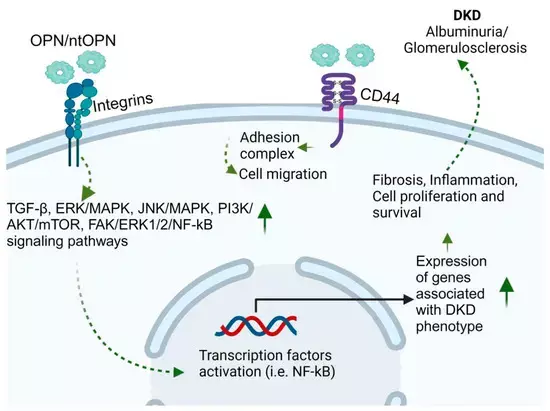- Home
- Medical news & Guidelines
- Anesthesiology
- Cardiology and CTVS
- Critical Care
- Dentistry
- Dermatology
- Diabetes and Endocrinology
- ENT
- Gastroenterology
- Medicine
- Nephrology
- Neurology
- Obstretics-Gynaecology
- Oncology
- Ophthalmology
- Orthopaedics
- Pediatrics-Neonatology
- Psychiatry
- Pulmonology
- Radiology
- Surgery
- Urology
- Laboratory Medicine
- Diet
- Nursing
- Paramedical
- Physiotherapy
- Health news
- Fact Check
- Bone Health Fact Check
- Brain Health Fact Check
- Cancer Related Fact Check
- Child Care Fact Check
- Dental and oral health fact check
- Diabetes and metabolic health fact check
- Diet and Nutrition Fact Check
- Eye and ENT Care Fact Check
- Fitness fact check
- Gut health fact check
- Heart health fact check
- Kidney health fact check
- Medical education fact check
- Men's health fact check
- Respiratory fact check
- Skin and hair care fact check
- Vaccine and Immunization fact check
- Women's health fact check
- AYUSH
- State News
- Andaman and Nicobar Islands
- Andhra Pradesh
- Arunachal Pradesh
- Assam
- Bihar
- Chandigarh
- Chattisgarh
- Dadra and Nagar Haveli
- Daman and Diu
- Delhi
- Goa
- Gujarat
- Haryana
- Himachal Pradesh
- Jammu & Kashmir
- Jharkhand
- Karnataka
- Kerala
- Ladakh
- Lakshadweep
- Madhya Pradesh
- Maharashtra
- Manipur
- Meghalaya
- Mizoram
- Nagaland
- Odisha
- Puducherry
- Punjab
- Rajasthan
- Sikkim
- Tamil Nadu
- Telangana
- Tripura
- Uttar Pradesh
- Uttrakhand
- West Bengal
- Medical Education
- Industry
Glucosamine Use Linked to Lower Risk of Diabetic Nephropathy: Study

According to a study published in Nutrition & Diabetes, regular use of glucosamine, a supplement often taken for joint pain, may reduce the risk of microvascular complications, including diabetic nephropathy, in individuals with type 2 diabetes. The findings, based on UK Biobank data, are promising but limited by the study’s observational design and lack of detailed dosage information.
Glucosamine is a widely used supplement for treating osteoarthritis and joint pain. New evidence suggests a potential association between glucosamine and type 2 diabetes, inflammation and cardiometabolic risk. We aimed to prospectively evaluate the association of habitual glucosamine use with risk of diabetic microvascular complications based on data from the large-scale nationwide prospective UK Biobank cohort study.
This analysis included 21,171 participants with type 2 diabetes who were free of microvascular complications from the UK Biobank. Incidence of diabetic microvascular complications was ascertained via electronic health records. The Cox proportional hazards model was used to assess the relationship between glucosamine use and the risk of diabetic microvascular complications. Subgroup analyses and sensitivity analyses were performed to explore the potential effect modifications and the robustness of the main findings.
Results: At baseline, 14.5% of the participants reported habitual use of glucosamine supplements. During a median follow-up of 12.3 years, 4399 people developed diabetic microvascular complications, including 2084 cases of incident diabetic nephropathy, 2401 incident diabetic retinopathy, and 831 incident diabetic neuropathy. Glucosamine use was significantly associated with lower risks of composite microvascular complications (hazard ratio (HR) 0.89, 95% CI: 0.81 to 0.97) and diabetic nephropathy (HR 0.87, 95% CI: 0.76 to 0.98) in fully adjusted models.
However, there was no significant inverse association between glucosamine use and the risk of diabetic retinopathy (HR 0.94, 95% CI: 0.83 to 1.06) or diabetic neuropathy (HR 0.88, 95% CI: 0.71 to 1.08). Habitual use of glucosamine supplement was significantly associated with lower risks of composite microvascular complications and diabetic nephropathy but not retinopathy or neuropathy in individuals with type 2 diabetes.
Reference:
Cheng, ZJ., Luo, Yf., Zhu, Qy. et al. Association of habitual glucosamine use with risk of microvascular complications among individuals with type 2 diabetes: a prospective cohort study in UK biobank. Nutr. Diabetes 15, 12 (2025). https://doi.org/10.1038/s41387-025-00369-8
Dr. Shravani Dali has completed her BDS from Pravara institute of medical sciences, loni. Following which she extensively worked in the healthcare sector for 2+ years. She has been actively involved in writing blogs in field of health and wellness. Currently she is pursuing her Masters of public health-health administration from Tata institute of social sciences. She can be contacted at editorial@medicaldialogues.in.
Dr Kamal Kant Kohli-MBBS, DTCD- a chest specialist with more than 30 years of practice and a flair for writing clinical articles, Dr Kamal Kant Kohli joined Medical Dialogues as a Chief Editor of Medical News. Besides writing articles, as an editor, he proofreads and verifies all the medical content published on Medical Dialogues including those coming from journals, studies,medical conferences,guidelines etc. Email: drkohli@medicaldialogues.in. Contact no. 011-43720751


